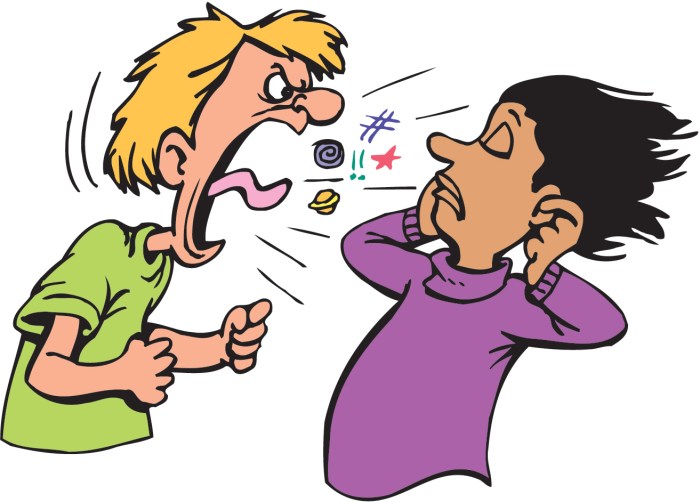Shouting in libraries, known as “gritar to shout en la biblioteca,” is a disruptive behavior that can have a negative impact on library patrons. It is important to understand the reasons why people shout in libraries, the consequences of such behavior, and strategies for preventing it.
This article will explore these issues and provide insights into the cultural and societal norms surrounding shouting in libraries.
Background of ‘gritar to shout en la biblioteca’
The phrase ‘gritar to shout en la biblioteca’ translates to ‘to shout in the library’ in English. It is a term used to describe the act of speaking loudly or shouting in a library, which is generally considered to be disruptive and disrespectful behavior.
Libraries are typically quiet places where people go to read, study, or research. Shouting can disrupt the peace and quiet of the library, making it difficult for others to concentrate or enjoy their time there.
Examples of its usage in different situations, Gritar to shout en la biblioteca
- A student is studying for a test in the library when someone starts shouting on their phone. The student is unable to concentrate on their studies and becomes frustrated.
- A group of people are having a loud conversation in the library. The librarian asks them to quiet down, but they ignore her. The librarian is forced to call security to remove them from the library.
- A child is running around the library and shouting. The child’s parents do not stop them, even after being asked to do so by the librarian.
Reasons for shouting in a library: Gritar To Shout En La Biblioteca

There are a number of reasons why people might shout in a library. Some people may be unaware that they are being disruptive, while others may simply not care. Some of the most common reasons for shouting in a library include:
- Lack of awareness:Some people may not realize that they are being too loud. They may be talking on their phone, having a conversation with a friend, or simply not paying attention to their surroundings.
- Disrespect:Some people may shout in a library as a way of showing disrespect for the space and the people who are there. They may be angry or upset about something, and they may take their frustrations out on others.
- Mental health issues:Some people who shout in libraries may have mental health issues that make it difficult for them to control their behavior. They may be experiencing anxiety, depression, or other disorders that make it difficult for them to stay calm and quiet.
Consequences and implications of such behavior
Shouting in a library can have a number of negative consequences, including:
- Disruption of others:Shouting can disrupt the peace and quiet of the library, making it difficult for others to concentrate or enjoy their time there.
- Damage to the library’s collection:Shouting can damage the library’s collection of books and other materials. For example, shouting can cause books to fall off shelves or become damaged by water or saliva.
- Negative impact on the library’s reputation:Shouting can give the library a negative reputation, making people less likely to want to visit or use its services.
Strategies for preventing shouting in a library

There are a number of strategies that can be used to prevent shouting in a library. Some of the most effective strategies include:
- Educating library users:One of the best ways to prevent shouting in a library is to educate library users about the importance of being quiet and respectful. This can be done through signage, library orientations, and other educational materials.
- Enforcing library rules:Libraries should have clear rules about noise levels and behavior. These rules should be enforced by library staff, who should be willing to ask people to quiet down or leave the library if they are being disruptive.
- Providing quiet spaces:Libraries should provide quiet spaces where people can go to study or read without being disturbed by noise. These spaces can be designated as “quiet zones” or “silent zones.” They should be located in areas of the library that are away from high-traffic areas.
- Working with community organizations:Libraries can work with community organizations to address the issue of shouting in libraries. For example, libraries can partner with mental health organizations to provide support for people who are struggling with mental health issues that may be contributing to their disruptive behavior.
Cultural and societal norms around shouting in a library

The cultural and societal norms around shouting in a library vary from country to country. In some cultures, it is considered to be acceptable to talk loudly in a library, while in other cultures it is considered to be rude and disrespectful.
In the United States, it is generally considered to be unacceptable to shout in a library. This is because libraries are seen as places of quiet study and reflection. Shouting can disrupt the peace and quiet of the library, making it difficult for others to concentrate or enjoy their time there.
Compare and contrast different perspectives and attitudes towards this behavior
There are a number of different perspectives and attitudes towards shouting in a library. Some people believe that it is always unacceptable, while others believe that it is sometimes acceptable, depending on the circumstances.
Some people argue that shouting in a library is always unacceptable because it is disrespectful to others. They believe that libraries are places of quiet study and reflection, and that shouting disrupts the peace and quiet of the library.
Others argue that shouting in a library is sometimes acceptable, depending on the circumstances. They believe that it is acceptable to shout in a library if you are trying to get someone’s attention, or if you are excited about something.
However, they believe that it is important to be mindful of the noise level and to not shout excessively.
The impact of shouting on library patrons

Shouting in a library can have a negative impact on library patrons. It can make it difficult for people to concentrate or enjoy their time there. It can also damage the library’s collection of books and other materials.
In addition, shouting in a library can create a hostile and intimidating environment for library patrons. This can make people feel uncomfortable or even unsafe. It can also discourage people from using the library, which can have a negative impact on the library’s overall mission.
Importance of creating a conducive and welcoming environment for all
It is important to create a conducive and welcoming environment for all library patrons. This means creating a space where people feel comfortable and safe to study, read, and research. It also means creating a space where people can enjoy their time without being disturbed by noise or other distractions.
Libraries can create a conducive and welcoming environment for all by:
- Enforcing library rules and regulations
- Providing quiet spaces for study and reading
- Educating library users about the importance of being quiet and respectful
- Working with community organizations to address the issue of shouting in libraries
Questions Often Asked
Why is it important to be quiet in a library?
Libraries are places of study and research, and noise can be disruptive to those who are trying to concentrate. Shouting can also be intimidating and make people feel uncomfortable.
What are the consequences of shouting in a library?
Shouting in a library can lead to being asked to leave, or even banned from the library. It can also create a hostile environment for other patrons.
What are some strategies for preventing shouting in a library?
Libraries can implement a variety of strategies to prevent shouting, such as posting signs, providing quiet zones, and training staff to address disruptive behavior.